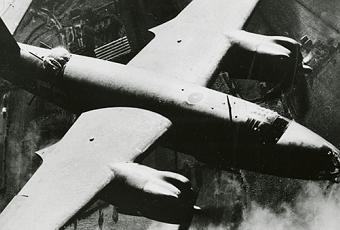

One moment we are with Captain Scott-Bowden swimming ashore from a midget submarine to Omaha Beach to take a soil sample, armed only with a commando knife, a Colt. Beevor follows personalities from one location to another.

Moving from the weather drama to surveillance of the assault beaches, to individual accounts of each beach, to the breakout for Paris, the action never lets up. The pleasure of this book lies in the vividness of an episodic narrative, backed up by judicious use of quotation. The main reasons for allied success are pinpointed as the speed of advance by US motorised divisions and Hitler's refusal to allow a flexible defence. He addresses controversies in military history - were the British in Normandy tired out from fighting elsewhere? How badly were the Canadians led? Was Montgomery a hero or a hindrance? - and other questions with balance and judgment. His skill with German archives (a former Hussars officer, he served in the British Army of the Rhine) is especially evident. Accruing greater detail, he has made use of overlooked and new material from more than 30 archives in half a dozen countries. Though it is hard to match Hastings's Overlord in particular, the fact is that Beevor has indeed added to the account. What has he found new that Chester Wilmot, John Keegan (under whom Beevor studied), Max Hastings and Carlo D'Este didn't? But with D-Day he was faced with a great problem, in that many more writers have tackled the subject previously. Once again a gripping narrative is the result. This is the same approach Beevor took in his justly acclaimed Stalingrad, Berlin: The Downfall and other books.

But although many other characters are equally well portrayed, from Churchill himself to US generals Bradley - with his specs and "hayseed expression" - and Patton, famous for his profanity, to Montgomery with his terseness and conceit, and De Gaulle with his arrogance and his long arms, it is the personal narratives of ordinary servicemen that drive this book. One of the many strengths of Beevor's book is his presentation of the nervous but philosophic personality of Eisenhower in the face of the "appalling responsibility" of deciding at what point he should trust the views of these meteorologists and give the order to go (in the event, a "very great risk" was taken with the weather, as Churchill said later in parliament).


 0 kommentar(er)
0 kommentar(er)
